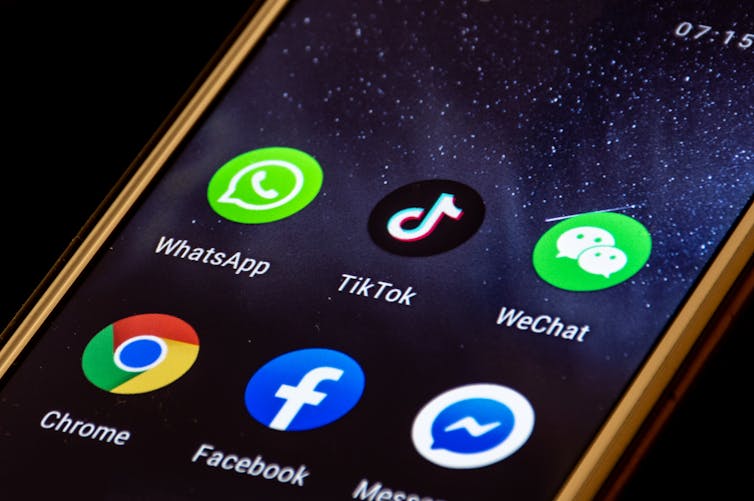Source: The Conversation (Au and NZ) – By Stan Karanasios, Associate professor, The University of Queensland
The success of Australia’s COVID-19 vaccine rollout will depend on everyone’s willingness to receive it. But experts have warned vaccine misinformation online puts Australia’s communities at risk, and some more than others.
Often, misinformation and undue scepticism are spread on social media. In March, the ABC reported on WeChat posts spreading the false claim the Pfizer vaccine can integrate with people’s DNA to transform them into “genetically modified humans”.
Studies have shown that people who rely on social platforms such as YouTube for their information are significantly less willing to be vaccinated. Adding to that, research conducted by a Griffith University team found reports about the AstraZeneca and Johnson & Johnson vaccines’ (very rare) link to blood clots had led to a drop in vaccine acceptance rates.
In such a rapidly shifting information landscape, we have to make sure those most at risk from COVID-19 are empowered to get vaccinated early.
Read more: Australian vaccine rollout needs all hands on deck after the latest AstraZeneca news, mass vaccination hubs included
False claims spread like wildfire
My colleagues and I surveyed 215 residents in Victoria to find out how vulnerable groups accessed emergency-related news. Survey participants (all of which used social media) included elderly residents, geographically or socially isolated people, and people from lower socioeconomic backgrounds.
We found 73% of respondents accessed emergency-related news on social media, the second preference after television. Facebook was the platform of choice and was used “often” by 70% of respondents. On average, social media was used more frequently by younger people and women.

The information landscape during a pandemic can be compared to that during a large bushfire: there are high-levels of uncertainty and risk, coupled with large volumes of information. In both scenarios individuals rely on affiliated and geographical groups for important notices, such as community and postcode groups on Facebook.
Of the people we surveyed, 40% percent believed information encountered on social media could be more accurate than official sources. And the vast majority (88%) said they expected to use social media as a news source in the future. Also, more than half reported getting their information through family or friends (65%), who said they themselves found it on social media.
Sourcing emergency information from social media can complicate our understanding of difficult issues. There are huge volumes of content, the quality is often poor and it can be difficult — particularly for vulnerable groups — to separate fact from fiction.
Filling knowledge gaps
Experts explain how the purveyors of misinformation exploit our willingness to share content without thinking. Even if even a small percentage of what we share is inaccurate, it creates a feedback loop that exacerbates the problem of a high information load coupled with poor information quality.
Adding to this, we know a person’s individual biases and worldview can also make them more vulnerable to misinformation.

Of those we surveyed, 61% felt they had very specific information needs during emergencies based on factors such as age, location and personal circumstances. When there’s a gap between a person’s information needs and information provided by the government, they must fill this gap with other sources.
The good news is there are several ways all of us can help curb vaccine misinformation on social media and, consequently, in our communities.
How to help
For a start, the federal governemnt’s Department of Health has a useful site addressesing common concerns around vaccine development and efficacy. It even responds to conspiracy questions such as: “Can COVID-19 vaccines connect me to the internet?”.
Trusted sites should always be referred to in discussions about vaccines. There are also online guides to help individuals refine their own ability to spot misinformation.
Our research found 87% of respondents thought it was important for official emergency response organisations to use social media. So perhaps it would be beneficial for these groups to increase their visibility on these platforms.
Beyond this, the younger and more tech-savvy among us can help those who are older, or culturally or linguistically diverse. If you know someone who gets their vaccine information from Facebook or a similar platform, redirect them to a more reputable source such as a government website, government-approved social media page or trusted news outlet.
Social media groups have a role to play, too. Group administrators and active members should ensure official health information is shared on pages, as they are often a “go to” source of information for the public. And where misinformation does sneak in, it must always be challenged or reported.
Read more: Cutting the ABC cuts public trust, a cost no democracy can afford
– ref. The first step to curbing COVID vaccine misinformation is finding out who is most vulnerable. Our research sheds some light – https://theconversation.com/the-first-step-to-curbing-covid-vaccine-misinformation-is-finding-out-who-is-most-vulnerable-our-research-sheds-some-light-158309







